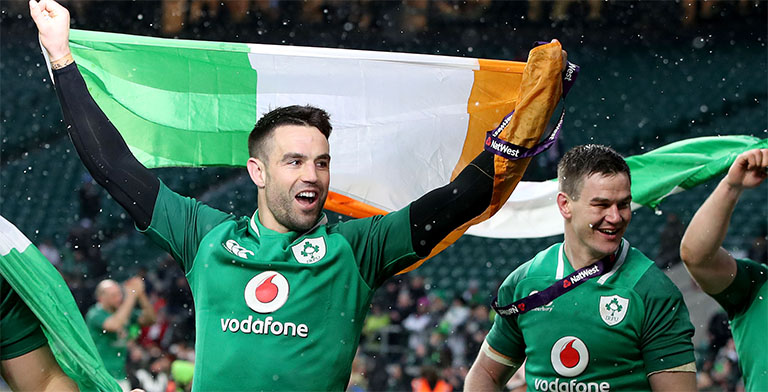The Winners & Losers From The Final Week Of The Six Nations
Stephen Lewis
Latest posts by Stephen Lewis (see all)
- Top Five Performances Of The 2010s: England - June 23, 2020
- Picking England’s 31-Man Squad For The World Cup - May 23, 2019
- Winners & Losers From Week One Of The Guinness Six Nations - February 5, 2019
Grand Slam History.
The Six Nations came to a close this weekend and we will now have to wait a whole new year to see the return of “rugby’s greatest championship.”
Ireland deservedly claimed the Grand Slam after beating England 24-15, handing Eddie Jones his first defeat at Twickenham. Tries from Garry Ringrose, CJ Stander and Jacob Stockdale (who now holds the record for most tries in the tournament with seven), saw Ireland claim their third Grand Slam in history, and first since 2009.
Earlier in the day, Scotland survived a scare at Stadio Olimpico to achieve a late 27-25 victory over Italy, and the final fixture of the competition saw Wales secure second place in the table with a narrow 14-13 win over France at Principality Stadium. With the tournament now in the rear-view mirror, we take a look at the winners and losers from the final round of the NatWest Six Nations.
Winners

Joe Schmidt
Ireland are often described as one of the world’s best coached sides, and after the championship, it is easy to see why. They achieved three bonus points from their five matches, whilst the majority of visits into the opponents 22 were converted into points. They do not look to play fast, free-flowing rugby, but Schmidt has coached them to be a clinical side that punishes mistakes, taking every opportunity they get. This is highlighted by the 31 points they’ve scored when the clock has gone red. Ireland’s ability to patiently build through the phases with ball in hand have seen opposition defence come unstuck, with their error count and handling errors staying impressively low throughout the Six Nations. Schmidt has been crucial to the team’s development, and with the World Cup on the horizon, Ireland are very well placed as the number two team in the world.
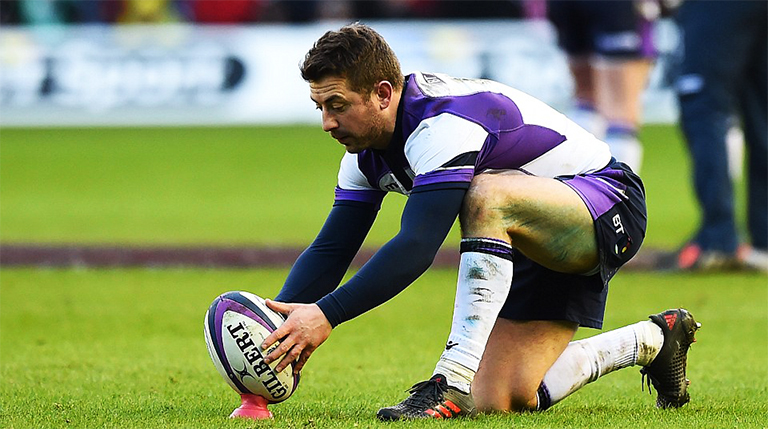
Greig Laidlaw
For the second time this tournament, Scotland relied on the boot of their scrum half to get out of trouble, and the 32-year-old once again rose to the occasion. Laidlaw calmly slotted a penalty in the 79th minute to hand Scotland their first away victory in two years, even with the Italian PA system going off during the kick! Gregor Townsend’s decision to move Laidlaw to fly-half proved to be the right call, as the former captain controlled the game superbly well, and allowed his team to build momentum as the game reached the final five minutes. Scotland may have been fairly inconsistent throughout the campaign, but Laidlaw has certainly showed the level of play that Townsend has been looking for in the latter’s’ first Six Nations campaign as Head Coach.
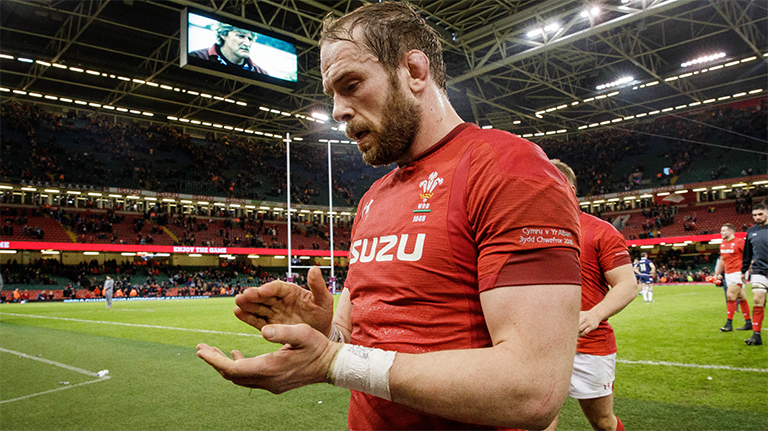
Alun Wyn Jones
Write him off at your peril. The Wales captain once again silenced any critics with an inspirational performance on Saturday against France. Jones made nine carries (beating one defender), which was more than any other Welsh forward on the field. He also fronted up in defence, making a mammoth 18 tackles, a statistic that was only bettered only by Josh Navidi. The 116-cap veteran has led from the front for many years now, and his game on Saturday summarised the influence he has on the Welsh National team. A great performance from the Ospreys lock, who seems to be getting better with age
Losers

Eddie Jones
He just can’t help himself. For the second time, the England Coach found himself facing the media for off-field comments, this time after making derogatory comments about the “scummy Irish” and the “piece of sh*t” Wales. However, he couldn’t back up his comments on the field, as England succumbed to their third consecutive defeat. Putting the first week aside, England have looked slow and predictable in attack, failing to use the decoy runners that served them so well against Italy. The team’s discipline, whilst a minor improvement above the French game, still came back to haunt them. Ireland’s first try came from a needless penalty from Maro Itoje (we’ll get to him…). Jones was booed by sections of the Twickenham crowd, and the Australian has come under scrutiny from the likes of Sir Clive Woodward and Will Greenwood. It is not yet a crisis that England find themselves in. But with a summer series looming large against a rejuvenated South African side now led by Rassie Erasmus, it could well reach that stage if England lose the series.
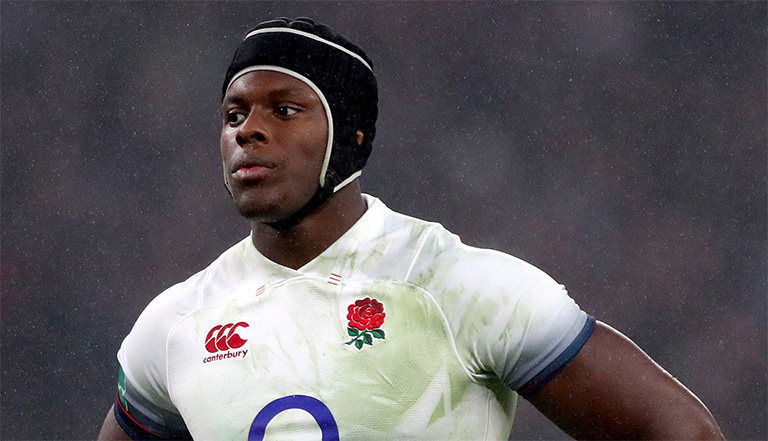
Maro Itoje
How the mighty have fallen. The 23-year-old was generally quiet throughout England’s campaign, and perhaps his most disappointing performance came against Ireland. As mentioned, his first penalty conceded – a needless offside at the ruck – led to Ireland moving upfield and eventually scoring, whilst his nine tackles made was the 2nd least out of any other England forward (Dylan Hartley made eight, but only played 57 minutes). His loss of form can partly be put down due to the large number of games he has played since Lions duty, but his leadership and impact on the field has not been felt for quite some time now in the white shirt. A rest is surely needed for the lock, and the rest of the Lions contingency, when England travel to South Africa.
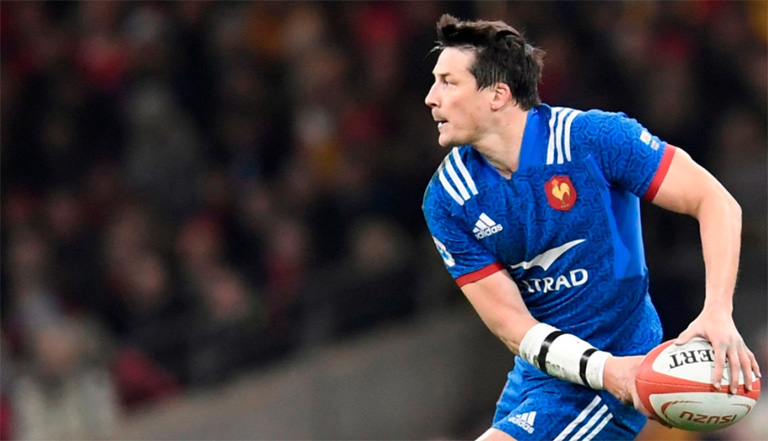
Francois Trinh-Duc
Despite France being in the game until the final whistle, Trinh-Duc failed to influence the game on the whole. An early drop-goal was about as good as it got for the fly-half, who missed touch from penalty kicks, and on the whole failed to ignite the back line that looked very good on paper. He was eventually hauled off, meaning Jacques Brunel cannot have been impressed with the Toulon playmaker’s performance. It remains unclear who France will have at number ten following the Six Nations, but Trinh-Duc may have damaged his chances after a poor showing.

